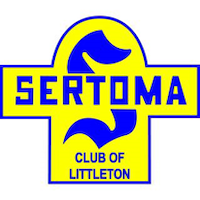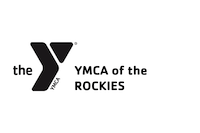Listening and Spoken Language Therapy
Listening and Spoken Language Therapy
With newborn infant screening now mandated across the state, hearing loss can be detected at an early age. Even very young infants with hearing loss can be fitted with hearing aids or a cochlear implant to give them access to sound. However, development of the child’s own speech and language must be nurtured by promoting and emphasizing listening and practicing speech. Our therapists specialize in the facilitation of this development.
The outcome of these therapies can mean a child developing more natural communication with the hearing world, the ability to mainstream in school classrooms, use the telephone, and even play musical instruments.
Therapies that focus on listening and speech are known as Listening and Spoken Language (LSL). Such therapies are guided by 10 principles:
1. Spoken Language. Promote the use of spoken language as the means of communication for children who are hearing impaired. Formal systems of visual communication, such as cued speech or sign language, are not part of LSL communication.
2. Early Identification. Promote early detection and treatment of hearing loss. Diagnose any degree of hearing impairment as early in the child’s life as possible, preferably at birth or immediately following changes in observed behavior.
3. Technology. Encourage use of the best medical and hearing technology available so that the child hears the human voice at a level adequate for comprehension. Pursue prompt and vigorous medical and audiologic management, including selection, modification and maintenance of appropriate ear molds, hearing aids, cochlear implants, FM systems and other sensory aids.
4. Parent Guidance. Develop parent competencies in teaching the child to listen and speak and in creating a positive environment for spoken language communication. Help parents understand and minimize the impact of impaired hearing on the family.
5. Auditory Learning Environments. Develop language through listening and make sound meaningful to the growing child’s mind and memory. Parents use the spoken language of their own community to integrate hearing and speech into all learning and daily experience.
6. One-to-one Teaching. Involve parents in the child’s therapy sessions teaching them how to use spoken language appropriately and respond to the child’s communication attempts. Enables ongoing evaluation and treatment of a child while guiding parents as the primary models for developing spoken language.
7. Hearing One’s Own Voice. Teach children to talk by hearing their own voices and imitating the speech of others. Encourage development of intelligible speech as children copy what they hear in what they say.
8. Sequential Learning. Use models of childhood development when encouraging the emergence of listening, language, speech, literacy and thinking skills. Introduce tasks or information appropriate to the child’s level of development.
9. Ongoing Evaluation. Monitor and assess the child in all areas of development as a regular part of the therapy program. Keep the goals high and modify the program and activities as needed to optimize the child’s progress.
10. Mainstream Education. Provide support services to facilitate educational and social inclusion in mainstream education classes. Encourage high expectations and the development of independence and competency with hearing peers. Adapted from the Auditory-Verbal Position Statement, 1991. Auditory-Verbal International, Inc.
OUR THERAPISTS

Krissa Britsch, MS, CCC-SLP, Cert. AVT, LSLS
Phone/text 918-849-1446
klbritsch@gmail.com

Nancy Korkes Guerrero M.Ed., CCC-SLP
303-841-5832
nkg4@comcast.net

Mary Mosher-Stathes Ma CED, Cert. AVT
303-321 8611
MMS441SS@aol.com

Amanda Shinall, Early Intervention Educator with an Emphasis on LSL
719-213-1338
amandashinall@gmail.com

Joanna Stith Ph.D., CCC-SLP, Cert. AVT
303-465-2687
Joanna@listeningforlife.com
Joanna’s Website: listeningforlife.com

Nanette Thompson M.S. CCC-SLP,Cert. AVT
303-887-0842
nanettejo@yahoo.com
Listening2Learn.com
There have been many times when she has announced how thankful she is that she can hear and speak. She truly appreciates the gift.
–Becky, Mother of a Listen Graduate

We Appreciate our Generous Sponsors


















Office Location
Listen Foundation
6950 E Belleview Ave, Suite 203
Greenwood Village, CO, USA 80111
info@listenfoundation.org
(303)-781-9440
Recent Facebook Posts
Scroll down below to see more posts




